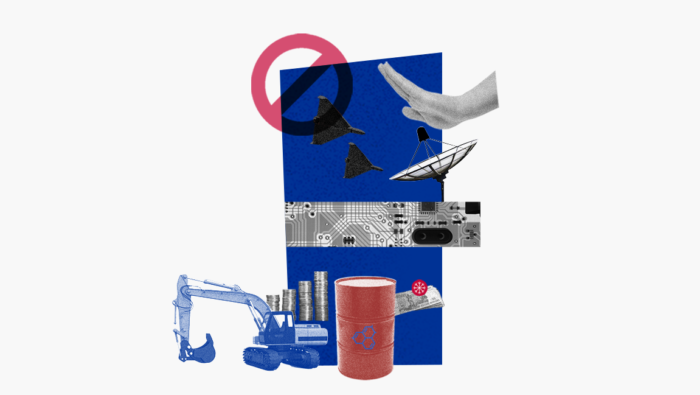"The agreed sanctions intend to hit hard at Russia’s economy and its ability to continue its aggression against Ukraine. The new measures include a ban on exports of drone engines, a prohibition on investments in the mining sector, and the suspension of broadcasting licenses of four additional Russian media outlets," according to the EU Council.President of the EU Commission Ursula von der Leyen welcomed the agreement of the EU's 9th package of sanctions against Russia saying that the new package sanctions "almost 200 individuals and entities involved in attacks on civilians and kidnapping children":
I welcome the agreement on the 9th sanctions package against Russia.
— Ursula von der Leyen (@vonderleyen) December 16, 2022
It focuses on tech, finance and media to push the Russian economy and war machine further off the rails.
It sanctions almost 200 individuals and entities involved in attacks on civilians & kidnapping children https://t.co/3vx73DMZyz
"After food and hunger, Putin is now weaponizing the winter, by deliberately depriving millions of Ukrainians of water, electricity, and heating. The European Union is responding to this latest escalation and war crime with our 9th package of hard-hitting sanctions. We will continue targeting the economy and against those who are instrumental in this brutal war," says Josep Borrell, High Representative for Foreign Affairs and Security Policy.The package includes further restrictive measures to cripple the Russian economy and the ability to continue its aggression against Ukraine, particularly, the following measures:
- new export controls and restrictions on the goods and technology that are dual-use or can contribute to the technological enhancement of Russia’s defense and security sector; expansion of the export ban on aviation and the space industry-related goods and technology to include aircraft engines and their parts;
- an asset freeze against two additional Russian banks and adding the Russian Regional Development Bank to the list of Russian State-owned or controlled entities that are subject to a full transaction ban;
- initiating the process for suspending the broadcasting licenses of four additional Russian media outlets: NTV/NTV Mir, Rossiya 1, REN TV, and Pervyi Kanal.
- a ban on the provision of EU advertising, market research, and public opinion polling services, as well as product testing and technical inspection services to Russia;
- expanding the prohibition targeting new investments in the Russian energy sector by additionally prohibiting new investments in the Russian mining sector;
- EU nationals will now be forbidden from holding any posts on the governing bodies of all Russian State-owned or controlled legal persons, entities, or bodies located in Russia;
- adopting a comprehensive package of individual measures.
EU criminalizes evasion of sanctions against Russia
- Western companies supplied components for Russian Orlan drones despite sanctions – media
- UK imposes sanctions on Russian commanders after strikes on Ukrainian infrastructure
- Ukraine sanctions clergymen of Moscow-backed Orthodox Church, one bishop under investigation
- Switzerland freezes USD 8 billion in financial assets under Russia sanctions
- New Zealand announces new batch of sanctions against Russia
- Japan imposes more sanctions on Russia for the annexation of Ukraine’s regions
- Ukraine sanctions some 3,600 individuals and entities linked to Russian invasion
- EU announces 8th round of sanctions on Russia

